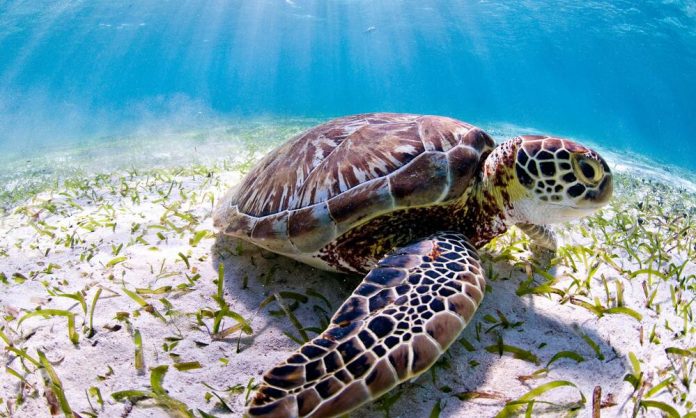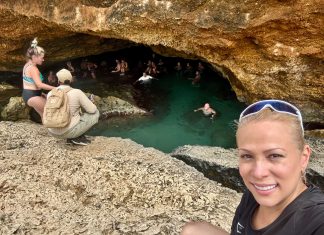
ORANJESTAD – On June 16, the United Nations celebrates World Sea Turtle Day to draw attention to the plight of sea turtles and promote conservation efforts.
Seven species of sea turtles are listed as vulnerable or endangered on the world conservation list due to human activity or artificially created environmental conditions. , Four of the seven sea turtle species regularly stop by Aruba to rest or lay eggs on the sand. Sea turtles prefer the ideal conditions of Aruba. The hawksbill turtle (Eretmochelys imbricata), the loggerhead turtle (Caretta caretta), the green sea turtle (Chelonian mydas), and the leatherback turtle (Dermochelys coriacea) are the four sea turtles that go to Aruba.
The Kemp’s ridley sea turtle (Lepidochelys kempii) is the sea turtle that is most in danger.
The main threats to sea turtles are:
Help and support organizations that protect sea turtles, such as Turtuga Aruba. Donate to Turtuga Aruba or become a volunteer member;
reduce the use of plastic and lower its impact: use reusable products when you go to the beach and avoid single-use plastic. Oxybenzone-containing products are prohibited because they affect coral reefs, the food source for sea turtles;
when boating, act responsibly – Watch out for sea turtles;
report the presence of sea turtles on the shores to Turtuga Aruba; If you see a sea turtle on the beach or notice sea turtle tracks on the beach, contact Turtuga Aruba at 592-9393. Do not disturb or touch sea turtles, and do not photograph with a flash as this disorients them. Turtuga Aruba monitors sea turtle activity near Aruba and shares this data with the Department of nature and Environment (DNM);
if you snorkel or dive and want to photograph sea turtles, do so from a safe distance and do not approach the sea turtles, this is against the law;
choose sustainable seafood farmed sustainably and in compliance with the law;
protect sea turtles and their habitat and teach others about sea turtles and their value.Poaching: Illegal killing of sea turtles for their meat, eggs, or shells for consumption or illicit sale;
Loss of Habitat: Sand beaches are necessary for sea turtles to lay their eggs because they make it simpler for the hatchlings to emerge and move around. Coastal development destroy their habitat. Newborn sea turtles are confused by the lights from these nearby structures, which makes them crawl away from the beach rather than toward it, which can be fatal.
Accidental Catch (bycatch): Sea turtles often become entangled in fishing nets or fish traps set to catch fish.
Plastic pollution: Sea turtles often mistake plastic bags for jellyfish, their primary food source. It can be fatal since it obstructs the digestive tract.
Climate change: Sea levels are rising due to climate change, flooding beachside nests. Sea surface temperatures also alter by climate change, which changes the sex of young sea turtles and causes an imbalance.
What can we do to help protect sea turtles?
Help and support organizations that protect sea turtles, such as Turtuga Aruba. Donate to Turtuga Aruba or become a volunteer member;
reduce the use of plastic and lower its impact: use reusable products when you go to the beach and avoid single-use plastic. Oxybenzone-containing products are prohibited because they affect coral reefs, the food source for sea turtles;
when boating, act responsibly – Watch out for sea turtles;
report the presence of sea turtles on the shores to Turtuga Aruba; If you see a sea turtle on the beach or notice sea turtle tracks on the beach, contact Turtuga Aruba at 592-9393. Do not disturb or touch sea turtles, and do not photograph with a flash as this disorients them. Turtuga Aruba monitors sea turtle activity near Aruba and shares this data with the Department of nature and Environment (DNM);
if you snorkel or dive and want to photograph sea turtles, do so from a safe distance and do not approach the sea turtles, this is against the law;
choose sustainable seafood farmed sustainably and in compliance with the law;
protect sea turtles and their habitat and teach others about sea turtles and their value.
















